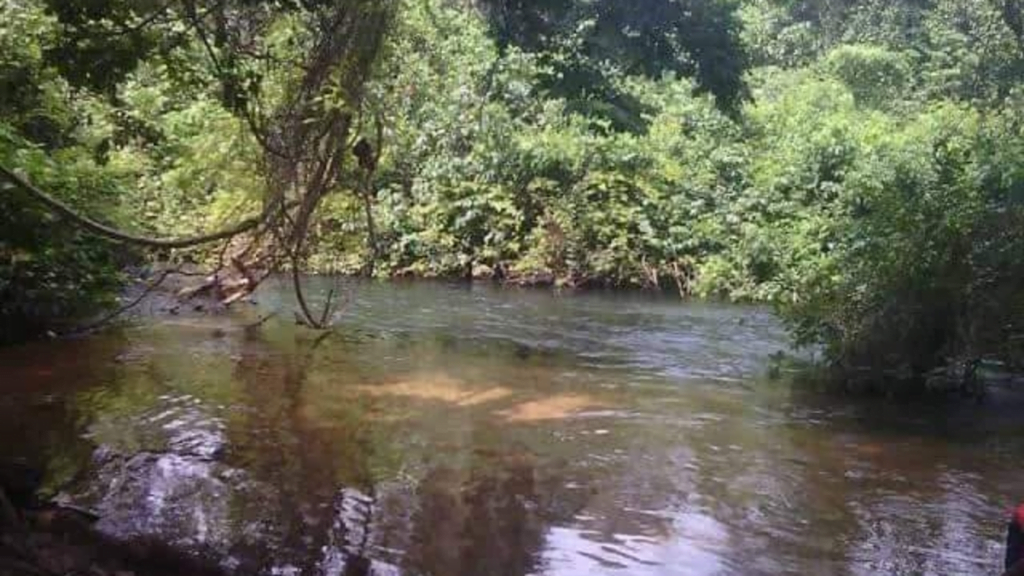Do you know that the Inachalo River is one of the most mysterious places in Africa? The Inachalo River flows through Idah, a town in Kogi state, Nigeria. The Inachalo River separates the Jukuns from the Igala territory. Aside from serving as a boundary between the two lands, the river is also used for drinking and fishing, particularly by the Jukuns. However, as of the time of writing this article, the Inachalo River is no longer drinkable, and the fish cannot be cooked. Those who tried it reported that the fish always returned raw, no matter how long it was cooked. What makes this water poisonous to drink and the fish unfit to eat? Continue reading to learn about the significant events in history.
Table of Contents
The Prince of Jukun Kingdom in Igala land
According to history, in the 16th century, the Prince of the Jukun kingdom went hunting and got lost. Trying to navigate his way, the Prince ended up in the Igala kingdom. He stayed there for many months, and when he intended to return to his kingdom (known to the Attah of Igala), Attah informed the people of Igala through his servants that the Prince of the Jukun kingdom wished to return to his kingdom. Attah continued by informing his people that since the Prince had been staying with them for several months, it was only proper for them to show their appreciation and farewell by giving him whatever gifts they could. Following the king’s instructions, the elders of the Igala kingdom assembled enough food and items for him. A few prominent chiefs accompanied him down to his kingdom to express gratitude for his brief stay with them.
Aku Uka, the king of the Jukun Kingdom, has harboured resentment toward Attah Omadoko. He resents Attah for his stubbornness to pay tribute to the Jukun Kingdom as frequently as his father did. A few days after the Prince left for his own kingdom, the elders and Aku Uka, the king of Jukun met and stated that if the Igala people could provide them with food in this manner as a token of appreciation for the Prince’s brief visit, it meant that their son had farmed more than that in the Igala kingdom. As a result, they demanded that the Igala people give them the last of their Prince’s food supplies. The Prince, knowing about the pranks his people were pulling, advised his father to hold off describing Igalas as good people who chose to feed him as a token of their gratitude for his stay in their territory.
The Prince forewarned the king—his father—against taking this regrettable action. Still, the king was adamant about it and wouldn’t budge. The Attah of Igala received a message from the Aku Uka telling him to give his son back the last of the farm’s produce. When the Attah of Igala heard this, he felt offended. He inquired whether the Jukun’s king had requested any additional food supplies due to his kingdom’s care for his Prince. Angered, the Attah then ordered the elders of the Igala kingdom to pack stones and dungs in their calabashes, collecting it as a gift to give to the king of the Jukun kingdom in fulfilment of his demand.
The elders of the Igala kingdom left in the dead of night to deliver the trash to the king of the Jukun kingdom, and they returned to the Igala kingdom the same night. The following morning, the king of Jukun was overjoyed for Attah’s obedience and eager to learn what the gifts contained. He ordered his servants to bring what the Igala people had brought the previous evening so that they could all share.
The Threat of War: The Jukuns Versus The Igala Natives (Apa War)
When they brought the calabashes and discovered they were all full of stones and dungs, the king of Jukun saw it as an insult to his kingdom. He immediately sent a message to the Attah of Igala, informing him to prepare for war over the insult to his kingdom.
He threatened to defeat him in battle, evade the Igala kingdom, and turn the Igala people into enslaved people. Attah Ayegba Omaidoko of Igala kingdom became scared of losing his kingdom to the Jukun people. When the Jukun soldiers arrived at Ida, fear gripped the people. The Jukun soldiers eventually evaded the land, intimidated the Igala natives, beat them, and forcibly took their possessions and agricultural produce.
As the Igala-Jukun War intensified, Attah sought the advice of Edegi, a mallam of Nupe ancestry. Edegi consulted the oracles, and the gods demanded the sacrifice of Attah Ayegba’s most cherished daughter, Princess Íníkpi. She was buried alive in Ọ́gbẹ́gà, just as the instruction specified.
Attah Ayegba received instructions to make another sacrifice toward the end of the Apa War. Although the war was nearly won, it was required to protect the Igala kingdom from further incursions. Attah Ayegba’s relative, Princess Ọ́modòkó, was sacrificed at the western bank of the Inachalo River with two daughters of Attah Ayegba, namely Ónojò Alíkáà and Ónojò Alẹ́gbẹ who were buried at different sites in Idah.
Inachalo River: The Flee of The Warriors and Death
The Inachalo River is the boundary that separates the Jukun and the Igala people. Hence, the warriors from the Jukun kingdom had to cross while fleeing from the Igala people. When they arrived at the river’s edge, they were exhausted and hungry. As a result, they drank from the river and feasted on the river’s fish. After a while, most of them developed swollen stomachs which eventually led to their demise. As they died, the water turned red like blood due to the charm used on it. The few warriors who had not participated in this action raced home with news of the calamities that had befallen their members.
Since then, no one has been allowed to drink the water from the Inachalo River, and that prohibition still stands today. A massive shrine is built at the river bank. The few persons who tried to capture fish from this river have reported that no matter how long one cooks the fish from that river, it never turns out right. Because of the sacrifice and charm applied to it, it will continue to taste fresh.
Final Thoughts About The Untold History of The Inachalo River
No fish caught in Inachalo can ever be cooked; no matter how long it is boiled or otherwise prepared, Inachalo fish will always be raw.
Other sources claim that the fish are not the typical tilapia or catfish but rather repulsively distorted fish. The locals don’t catch or consume the fish. Some people claim that if you get hurt by fish bones, the wound won’t ever get better. Since then, nobody has been allowed to catch or kill fish from the Inachalo River for human consumption. Seafood from Inachalo is always served raw.

